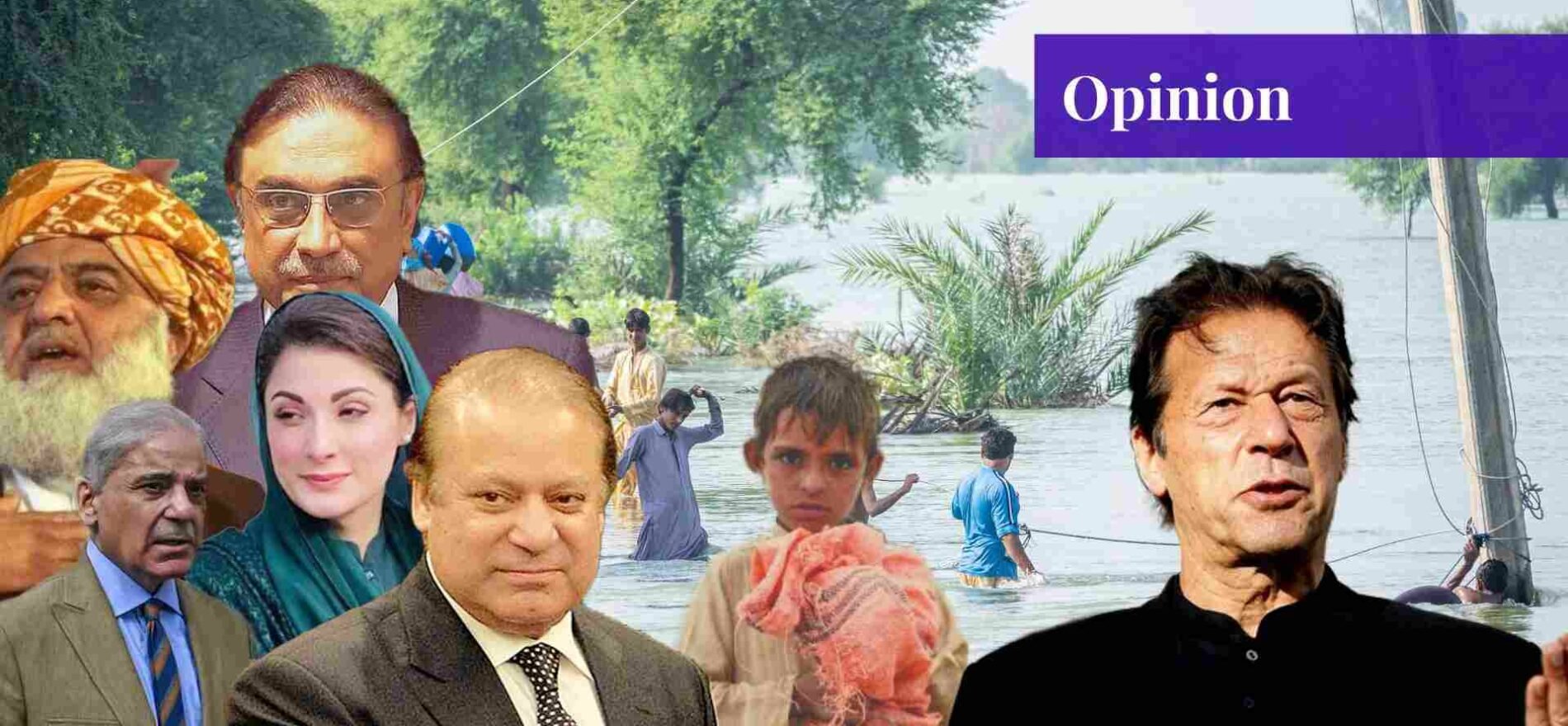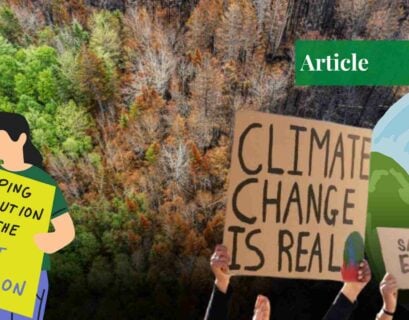Hamra Tariq is an undergraduate student currently pursuing her international relations degree at Kinnaird College for Women, Lahore. She has a keen interest in South Asian politics, the Indo-Pacific, and the shift in the global order.
Political Polarization
The present time’s political polarization in Pakistan has made it extremely difficult to differentiate between manipulation and guidance. The gradual absence of reason and evidence from debates has widened the divide in society. The fragmented social fabric of society finds it difficult to arrive at points of agreement. The increasing lack of political convergence is hampering the process of political evolution in Pakistan.
Although divergence along ethnic, religious, provincial, and ideological lines has existed since Pakistan’s establishment, the recent polarization in Pakistan has limited prospects for an integrated society. The lust for power at the expense of the social structure of the society targets the likelihood of national cohesiveness. With recent catastrophic floods hitting Pakistan, it is uncertain how a consolidated climate policy will find its way amidst the political confrontations.
The Grounds for Polarization in Pakistan
The first and foremost cause of polarization in Pakistan lies in the lack of political consensus among the leading national parties. The opposition and government find it impossible to negotiate even on national security issues. State institutions, as important as the Parliament, fail to bring political parties to agree on certain important issues without getting indecent. The prime example is visible each year in annual budget sessions when the economic policy of the succeeding year is presented at Parliament without it being peaceful.
Similarly, since the ouster of former Prime Minister Imran Khan, through a no-confidence motion, intolerance has only increased. The lack of willingness to cooperate on public issues is apparent from the regular press conferences primarily based on demeaning political opponents. Opinions remain inflexible, even facts and evidence cannot alter them.
The political elites usually work towards national unity, order, and solidarity ensuring the progress and development of the country. In Pakistan, the elites have quite opposite agendas. They tend to fracture societal formation through religious, ethnic, and ideological lines. With the majority coming from a feudal-tribal background, the political elites have encouraged values that “run counter to nation and state building” in a demographically diversified country.
Simultaneously, the rise of an abusive culture in society is taking away patience. It starts from the acrimonious speeches by a party leader, addressing the opponents with indecent remarks reflecting hatred, and this trickles down onto their supporters. Very recently, the visuals in Punjab Assembly on April 16th mirrored the level of intolerance that, unfortunately, turned into violence inside a provincial assembly.
Intolerance is excessively promoted by the open space online where each party designates special teams to weaponize social media against their political opponents. Cyberspace almost eliminates accountability, thus, promoting the acerbic language. It enables party sympathizers to permit themselves to abuse anyone who thinks differently from their views. This shrinks the room for constructive debates with the ability to reach decisive conclusions. The role of mainstream media too, in polarization in Pakistan is unprecedented.
Interventions by “Power Quarters”
Pakistan’s democratic credentials have been extremely impotent and fragile. The security establishment finds it right and effortless to intervene in political decision-making beyond the parameters of the constitution. This has been Pakistan’s history; it took nine long years to form a constitution and a mere three years for its annulment without any process of power transfer.
But, this does not take away the blame from political factionalism. The political parties have time and again invited them to sort out entirely political differences. The establishment has enjoyed the privilege of being the “saviors” every time. The recent decade is no exception. From the Memogate scandal to the alleged intervention narrative built by Imran Khan, security institutions have been blamed for their political manipulations. This comes at the cost of distrust among the public with regard to state institutions.
Cost of Polarization in the Society of Pakistan
The most prominent ramification comes in the face of political instability. This makes it hard for state institutions to function in their best capacity. The efficiency of the already paralyzed institutions declines further. Provided different political parties rule different provinces, a center ground on policy matters is impossible to achieve even among the coalition member parties.
This drastically impacts the economy which is in danger of freefall all the time. Economic development is dependent upon a political dialogue. Thus, in wake of depleting economic reserves and a serious climate crisis, a political consensus is a requisite for the solution. As a result of this, harsh political debates have penetrated into households, offices, and streets.
The level of tolerance is dramatically diminishing in society. It has become common to hold grudges among close relations over differences in opinion triggered by the “unceasing efforts by political leaders to demonize their opponents.” It also erodes away the trust people hold in political representatives, believing that they are involved in a power struggle.
Lastly, the attacks on freedom of expression sheds a light on the insecurity power circles feel about dissenting voices. The disagreement on views has led to the closure of media houses, arrests of journalists, and their fleeing from the country due to threats.
The Climate Challenge
In between this political battleground, disastrous floods hit almost all provinces of Pakistan during the monsoon season. However, unfortunately, the 2022 floods in Pakistan were no exception to being politicized by the representative elite. One-third of Pakistan is under water as a result of the largest floods in its 73-year history. The estimated economic loss to Pakistan is 12.5 billion USD. Such a huge capital loss will further deteriorate Pakistan’s economic position.
It already took weeks for the humanitarian crisis to come to light, and the political parties still portrayed utter insensitivity towards the issue. The matter of floods is not over, in spite of that, the media coverage has again shrunk to a minimum while other “dominant” issues have taken their place. The political instability created by those assuring protection from floods themselves makes it to the headlines more often than not.
Pakistan’s provincial and federal governments use climate change and natural phenomena as scapegoats to hide their incompetence. The climate crisis is not just a natural disaster. Associating the “natural” angle to the catastrophe shows the lack of functional policy and the poor management of the flash floods by the government. It is a combination of climate change, institutional corruption, and lack of preparedness.
Managing national loopholes in management requires political consensus, as for any other national issue. However, the ongoing divisive politics cannot find enough time to pay attention to and keep a check on factors that worsen the impact of flooding—such as building hotels along rivers, excessive deforestation, and no implementable plan for reservoirs or small dams.
The Pakistan Meteorological Office has been sending alerts regarding the rainfall that has been above average. However, it is unclear how much of that information was taken into account when the National Disaster Management Authority and its provincial counterparts were creating their monsoon plans.
Floods are not the end of the story, subsequent crises are yet to follow. In addition to the already existing food insecurity, Pakistan’s extensive loss of farmland and animals could lead to even more severe food shortages. Currently, Pakistan has only under 5 percent of its area forested; with the increasing deforestation rates, the country becomes more susceptible to flooding in the future.
Way Forward
It is essential that politicians, policymakers, and other stakeholders transcend the bitter political conflicts in order to help Pakistan in sailing through the disaster we created for ourselves. For that, political objectives, societal cohesion, and national interests should take priority over ego, personal preferences, and political gains.
In order to prevent society from further alienation and polarization, there needs to be a wider political reconciliation in Pakistan. This calls for urgent action to mend the fractured social structure and protect the youth so that they can continue to contribute to Pakistan’s prosperity rather than being used as political pawns. Pakistan must establish rational economic principles and gain economic relevance in light of its rapidly growing population and depleting natural resources.
Public officials have a duty to progress the discourse and explicitly indicate the concerns of the public and their proposed solutions. It is high time that the public starts holding them accountable. Pakistan needs to seriously perceive climate change as a non-traditional security threat and deal with it with national consensus. “There needs to be more convergence on science and policy.“
The government and opposition have to realize that a focus on risk reduction and building resilient infrastructure is essential. Otherwise, these disasters will become so frequent that there won’t be enough time, or funds, to respond as effectively. Relief, funds, telethons, and international assistance, none of these guarantees a secure future. It can only be done by an integrated climate policy.
If you want to submit your articles/research papers/book reviews, please check the Submissions page.
The views and opinions expressed in this article/paper are the author’s own and do not necessarily reflect the editorial position of Paradigm Shift.



















